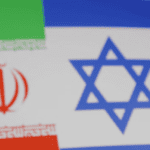Oil markets tumbled and US stocks rallied Monday after Iran launched a long-anticipated retaliatory strike on American military sites in Qatar and Iraq. The missiles, which Iran claimed matched the number of bombs dropped by the US on its nuclear facilities over the weekend, were largely intercepted with no casualties reported — and traders quickly interpreted the move as symbolic, not escalatory.
West Texas Intermediate crude fell 7.2%, or $5.33, to $68.51 a barrel, marking the steepest one-day drop in nearly three months. Brent crude closed down by the same percentage to $71.48. The decline came just hours after oil had surged more than 6% on fears that Tehran would respond forcefully and disrupt global energy flows.
But Iran’s decision to give Qatar advance notice of the attack, paired with the lack of reported damage, helped calm fears of a wider conflict.
“Ten missiles is not that much. Every one is dangerous… but hopefully at this point we’re not going to see further responses by the Iranians,” said Kirk Lippold, former commander of the USS Cole, speaking to CNN.
Markets Rebound on De-escalation Hopes
The Dow Jones Industrial Average gained 374 points, or 0.89%, while the S&P 500 rose 0.96% and the Nasdaq Composite added 0.94%, rebounding after early-session declines.
The broader market optimism came from the belief that Iran’s move was more about saving face than escalating tensions. A source familiar with the strike told CNN that coordination with Qatar was intended to minimize casualties and preserve a diplomatic off-ramp.
“This looks like a controlled response from Iran — not a path to war,” said Cedric Leighton, a retired US Air Force colonel and CNN military analyst.
A senior White House official confirmed that the Trump administration had anticipated the retaliation but does not want further military engagement in the region. President Trump monitored the situation from the Situation Room, with officials noting that the US would respond only if the conflict escalates.
Energy Markets Await Real Disruption
Despite Iran’s threats and symbolic attack, there is still no disruption to oil production or exports. That’s key, as roughly 20% of the world’s oil passes through the Strait of Hormuz — a critical chokepoint that Iran could theoretically block in a full-scale confrontation.
“Unless there’s a material interruption in Gulf energy production or flows, I think any further spikes will be contained,” said Bob McNally, president of Rapidan Energy Group.
Energy Secretary Chris Wright echoed the sentiment, telling CNBC that he expected oil prices to move down, given the current level of tensions.
Meanwhile, gold rose a modest 0.2%, Treasury yields fell slightly, and the US dollar slipped 0.3%, reversing earlier gains. The dollar’s weakness was also linked to concerns over Trump’s latest tariffs, which have triggered inflation worries and economic uncertainty.
Strategic Calculations and Market Balance
The response from Tehran follows a string of high-stakes military moves. Over the weekend, the US struck three Iranian nuclear facilities in what it described as a preemptive move to halt Iran’s nuclear advancement. Iran responded with a calibrated missile barrage — while Israeli strikes continued targeting Iranian infrastructure, including access routes to the Fordow facility and Tehran’s notorious Evin prison.
So far, the geopolitical chess game has stopped short of a full-scale war.
“There’s a certain symbology to this. If Iran controls its reaction, this could be their offramp. But if the US or Israel respond more forcefully, all bets are off,” warned Leighton.
Wall Street, for now, is betting on restraint.
Disclosure: This article does not represent investment advice. The content and materials featured on this page are for educational purposes only.
Related:
Markets Brace for Chaos as Strikes, Inflation, and FED: What to watch this week
Iran–Israel–US Conflict Erupts: Nuclear Strikes, Hormuz Threats, and Global Fallout
US-Iran Conflict Escalates After Strikes on Nuclear Sites: What We Know So Far
US Hits Iran’s Nuclear Sites — Iran Strikes Back as War Escalates
Rising oil prices, inflation fears, and geopolitical volatility unsettle investors










